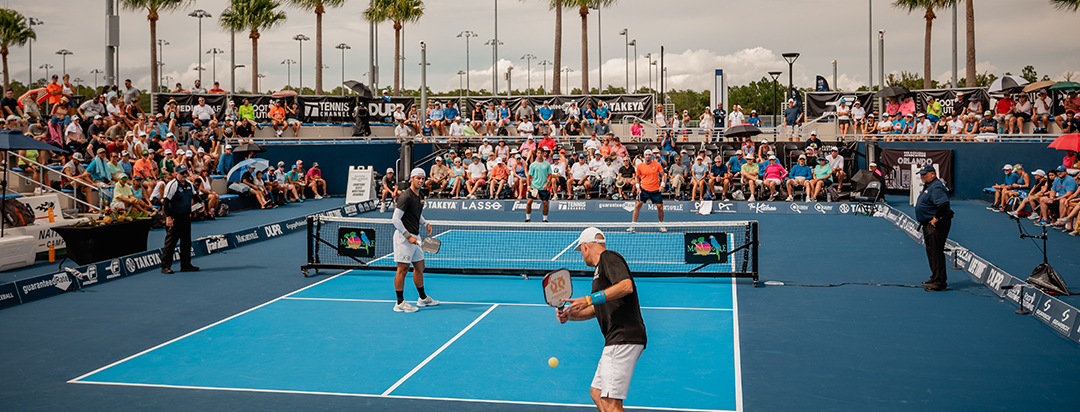Pickleball has exploded in popularity over the past decade, captivating players with its accessibility, exciting gameplay, and welcoming community. Despite its rapid growth and millions of fans worldwide, pickleball has not yet earned a spot on the Olympic roster. Why is this fast-growing sport not part of the Games, and what challenges stand in its way? Let’s explore the reasons pickleball is not an Olympic sport and what it would take for the game to reach this prestigious level.
What Does It Take to Become an Olympic Sport?
Before diving into why pickleball isn’t in the Olympics, it’s important to understand the requirements for Olympic inclusion. The International Olympic Committee (IOC) has a rigorous process for evaluating and approving new sports. Here are some of the key criteria:
1. Global Reach
- A sport must be widely played across multiple continents and countries.
- It needs a strong presence in both men’s and women’s divisions, with international tournaments and championships.
2. Organized Governance
- The sport must have a unified governing body that oversees its rules, competitions, and development worldwide.
- Consistent standards and a framework for competition are essential.
3. Competitive Structure
- A clear pathway from grassroots participation to elite competition is required.
- This typically includes national, regional, and international events leading up to major global championships.
4. Popularity and Marketability
- The sport must attract a significant audience, both in-person and through media coverage.
- It should have the potential to engage viewers and grow the Olympic audience.
5. IOC Approval
- Even if a sport meets all criteria, inclusion ultimately depends on the IOC’s decision, which considers factors like event scheduling, budget, and Olympic values.
Why Isn’t Pickleball an Olympic Sport Yet?
Despite its rapid rise, pickleball faces several hurdles in meeting the IOC’s requirements. Here’s a breakdown of the key reasons it hasn’t made the cut:
1. Limited Global Reach
- North America Focus: Pickleball’s popularity is heavily concentrated in the United States and Canada, with growing pockets of interest in countries like Australia, the UK, and India.
- Lack of Widespread Play: While the sport is expanding, it’s not yet widely played across continents like Africa, Asia, and South America, which are crucial for Olympic consideration.
2. Developing Governance
- International Federation of Pickleball (IFP): The IFP is the global governing body for pickleball, but it is still in the early stages of expanding its reach and unifying national organizations.
- Fragmented Efforts: Some regions lack organized structures for tournaments and player development, which hinders the sport’s global cohesiveness.
3. Competition for Olympic Slots
- The IOC limits the number of sports in the Olympics, making the competition for new additions fierce.
- Sports like skateboarding, surfing, and climbing were recently added, while others like karate and baseball/softball were removed or rotated out.
- Pickleball faces stiff competition from other emerging sports with broader global appeal.
4. Perception as a Recreational Sport
- Pickleball is often seen as a casual, recreational activity rather than a high-performance competitive sport.
- While professional leagues and tournaments are changing this perception, the sport needs more recognition at the elite level to gain Olympic credibility.
5. Lack of Professional Pathways
- Although organizations like the Professional Pickleball Association (PPA) and Major League Pickleball (MLP) are elevating the sport, there is no universally recognized pathway for players to progress from amateur to professional levels on a global scale.
What Steps Does Pickleball Need to Take to Reach the Olympics?
While the road to the Olympics is challenging, pickleball is making strides toward meeting the necessary criteria. Here’s what needs to happen for the sport to achieve Olympic status:
1. Expand International Reach
- Increase participation in underrepresented regions like Africa, Asia, and South America.
- Host international tournaments to attract global attention and grow the sport’s footprint.
2. Strengthen Governance
- The IFP must solidify its role as the unified governing body for pickleball worldwide.
- Collaboration with national federations is essential to establish consistent rules, rankings, and competition structures.
3. Build Professional Pathways
- Develop a standardized system that allows players to progress from grassroots play to elite competition.
- Incorporate pickleball into major multi-sport events like the Pan American Games or the World Games, which often serve as stepping stones to Olympic inclusion.
4. Increase Media Visibility
- Broadcast high-profile tournaments to larger audiences through partnerships with sports networks.
- Highlight the competitive nature of the sport to combat its “recreational” image.
5. Mobilize the Community
- Pickleball enthusiasts can help by spreading awareness, organizing events, and encouraging new players to join.
- Advocacy from players, fans, and organizations will be key to driving global adoption.
Could Pickleball Be in the Olympics One Day?
The future looks promising for pickleball. The sport’s growth has been nothing short of explosive, with millions of players joining the game in recent years. Key factors contributing to its Olympic potential include:
- Professionalization: The rise of pro leagues and televised events has helped elevate pickleball’s profile as a serious competitive sport.
- International Growth: Countries like Japan, Germany, and India are beginning to embrace pickleball, signaling its potential for global expansion.
- Community Passion: The pickleball community’s enthusiasm and dedication provide a strong foundation for future growth.
While it may take years, if not decades, to meet the IOC’s criteria, pickleball’s upward trajectory suggests that Olympic inclusion is not out of reach.
Final Thoughts
Pickleball is not yet an Olympic sport, but its rapid growth and increasing global appeal position it as a strong contender for future inclusion. While there are challenges to overcome, the sport’s accessibility, excitement, and community spirit make it a perfect fit for the global stage. With continued efforts to expand its reach, strengthen governance, and elevate its competitive profile, pickleball may one day shine as an Olympic event. Until then, the pickleball community can continue to enjoy its growth and celebrate its journey toward greater recognition.




